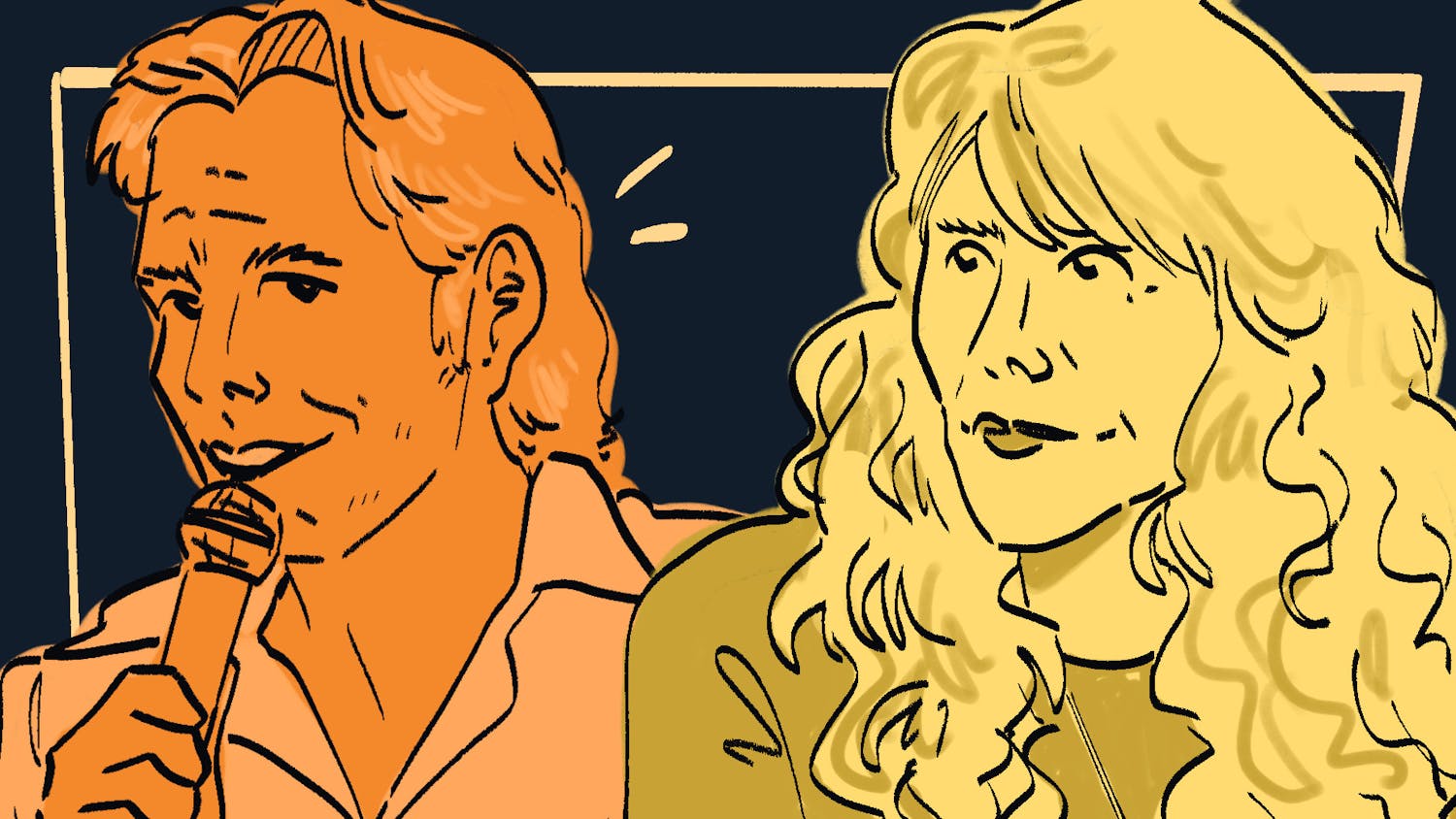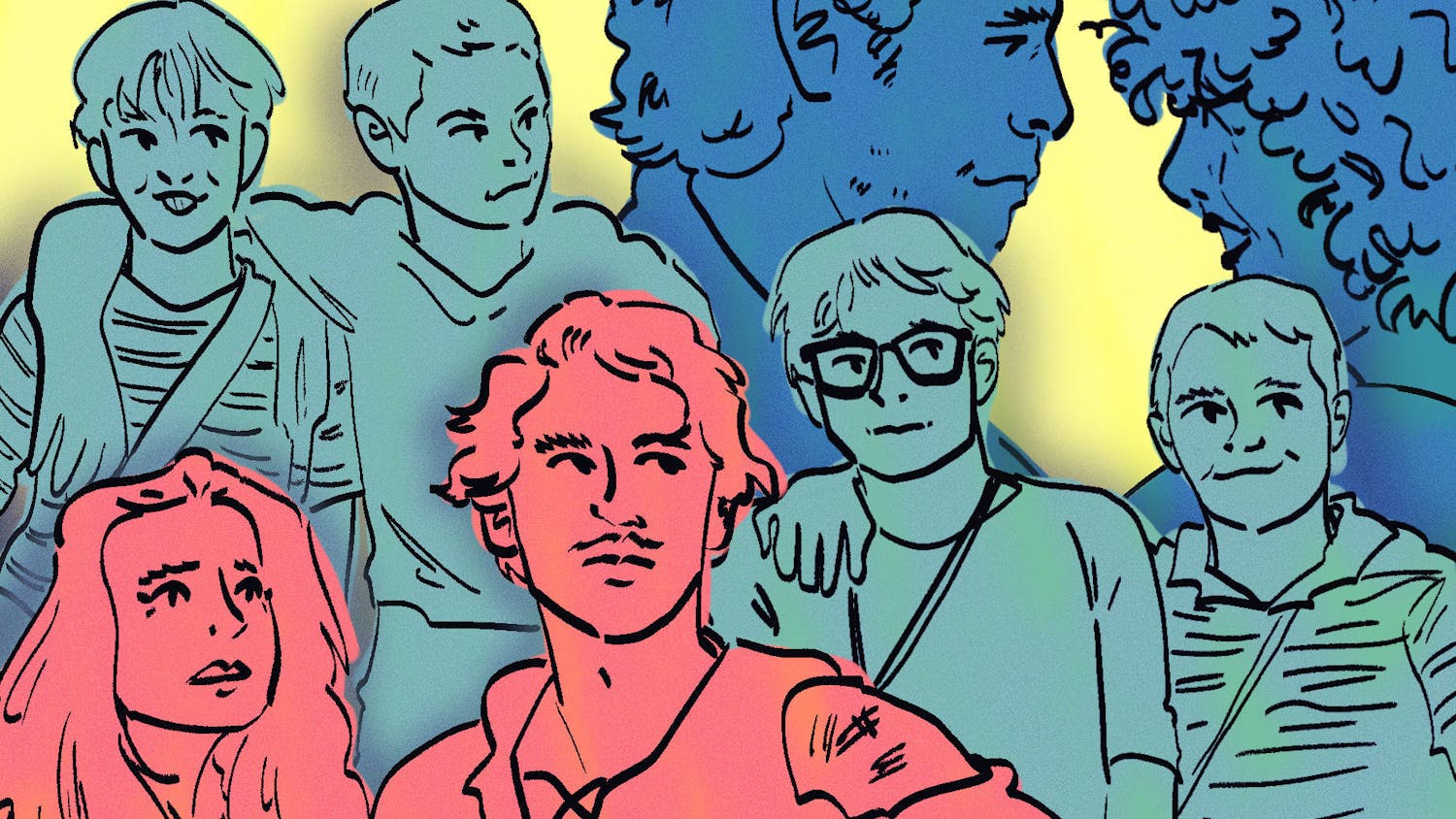This past Friday, April 21, Friday Night Rock brought rapper Saba to perform at Sarner Underground. The 22-year-old Chicago native has worked with artists like Noname and Mick Jenkins, and he was recently featured on “Angels,” a single from Chance the Rapper’s 2016 album, “Coloring Book.” Saba released his own project in 2016 as well, titled Bucket List Project. Before the show, The Dartmouth sat down with Saba to talk about his music, his influences and his city.
When did you start making music?
S: I started making music when I was 9 years old.
What inspired you to start?
S: I just came from a really musical family. My dad did music and s---, and my grandad did music and my uncle did music, so it was kind of inevitable.
Did you think that you were going to be making music professionally when you were in high school? Did you ever look at other creative outlets?
S: Absolutely. I mean, when I was like eight, I used to like drawing. I used to wanna make a cartoon one day, which I still kind of wanna do, but that was the only other thing that I ever really thought about doing.
When you were eight, was it just instruments or did you start with rapping?
S: I started playing piano when I was like seven or eight, and then from there on I just started producing and trying to rap and s---.
When did you release your first project?
S: 2012. Dec. 18, 2012. It was called “Get Comfortable” — actually that’s a lie. That is a lie. My first project that I put on the internet was called “Born Emperors.” I put that out Feb. 15, 2011 when I was in high school. But it was some high school s---, I don’t know, “Get Comfortable” was like my first real project. I dropped “Born Emperors” just on some high school s---.
You’re part of this generation of up-and-coming Chicago performers and artists that includes Chance the Rapper, Vic Mensa, Noname, Mick Jenkins and countless others. You’re all coming out of the same area and are all coming up at the same time. What do you think is the cause of that?
S: There’s a lot going on in Chicago. But I think one of the most important parts is that people are collaborating. Chicago is very inspired, and it’s always been a very inspired place. There’s both sides to Chicago — you hear one more than the other maybe — but there are a lot of stories in Chicago, and I think it’s just young people speaking their minds and stickin’ together doing it.
Violence in Chicago touches a lot of your music. How do you take that kind of terrifying reality and make something more positive with your music?
S: I think, more so than with the music, it’s kind of like what you have to do as a person. So I think, even speaking on a lot of the terrifying s--- that happens in Chicago, a lot of young people don’t see it as the end. And I think that as long as there’s that underlying message of hope in the music, then it’ll come off as positive. I don’t even know if what I’m saying a lot of the time is positive or not, but I am hopeful about it. I do hope to one day change it, I do try to inspire people to change it and to be different than what’s happened in the past.
Another big part of your music is this religious aspect that comes in to play a lot. What role do you think religion has to play in Chicago and in hip hop music?
S: To each his own, I don’t really see it as a one or the other kind of thing. I don’t really consider myself religious at all, but there are a lot of spiritual elements in a lot of my writing, and I think it’s just natural because I don’t really consider myself religious. I think as far as Chicago, a lot of people came up in church, but I don’t really know. It’s hard to speak on what inspires other people to make what they make, but for me it’s just a natural sense of spirituality and trying to be in tune with some higher power.
Who would you say are your biggest influences?
S: Bone Thugs-n-Harmony is kind of the reason I became a rapper so I would have to put them atop the list. My father too — for me those two are kind of a given. Besides that, I think I’d say like Pharrell ... Who can I put in this list? I’m not sure. Those are the three for right now. As far as what they did with patterns and the sing-song kind of thing in their music, that’s a big influence.
One of my favorite parts of your album is the phone calls at the end of some songs where people tell you what’s on their bucket list. What’s your favorite response?
S: My personal favorite is [Chicago singer] Jean Deaux, at the end of “Symmetry.” She wanted to direct a TV show, reverse gentrification and [smoke] with Beyoncé.
And Will Fountain is just a legend at this point, cannot forget about him. (Fountain’s bucket list entry appears at the end of the first track, “In Living Memory.” He wants to have a burger from In-N-Out, go one-on-one against basketball star Derrick Rose and hook up with Kylie Jenner, according to the entry.) I’m trying to take Fountain to In-n-Out burger next month.
Is Fountain one of your friends?
S: I have no idea who Fountain is. He’s a kid from Twitter. I wanted to get fans involved with the creation of the album so like 100 people sent in their personal bucket lists, and Fountain was one of the people who sent me an email. Taking Fountain to In-n-Out is on my personal Bucket List.
Who’s an artist you would like to work with in the future?
S: I want to work with Robert Glasper. He’s like a crazy producer-pianist — it’s hard to describe. You might just have to end this interview and then instantly google him.
What’s next for you?
S: I’m ending a tour right now and hitting some colleges. I guess now it’s time to make some more music. I haven’t been in the same place for a while so I haven’t really had time to be creating stuff, but after these few shows I have coming up, I plan to just stay put and make some s---.
Who are your top three Chicago rappers of all time?
S: Hmm ... Lupe Fiasco. Twista ... I don’t know, Twista’s funny ’cause he’s just the OG at this point so he’ll just be knocking s—t out hella fast. But damn. Twista, Fiasco and Kanye West?
Eh. I can come up with someone better for this list than Kanye. I’m gonna have to stick with Twista and Fiasco and leave one blank for us to see how this generation of Chicago artists do for like the next five to 10 years.
For the kids?
S: Yeah, well. For myself really. I’m just gonna leave one blank for myself.
This interview has been edited and condensed for clarity and length.



